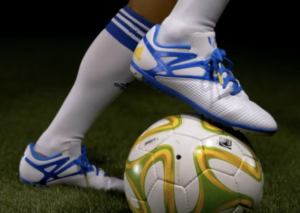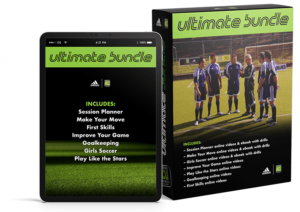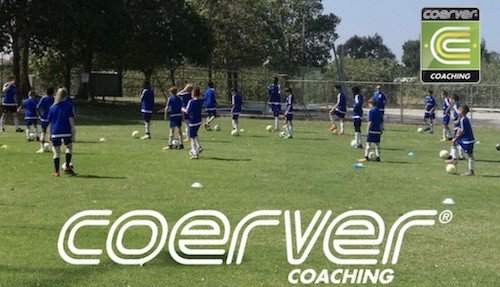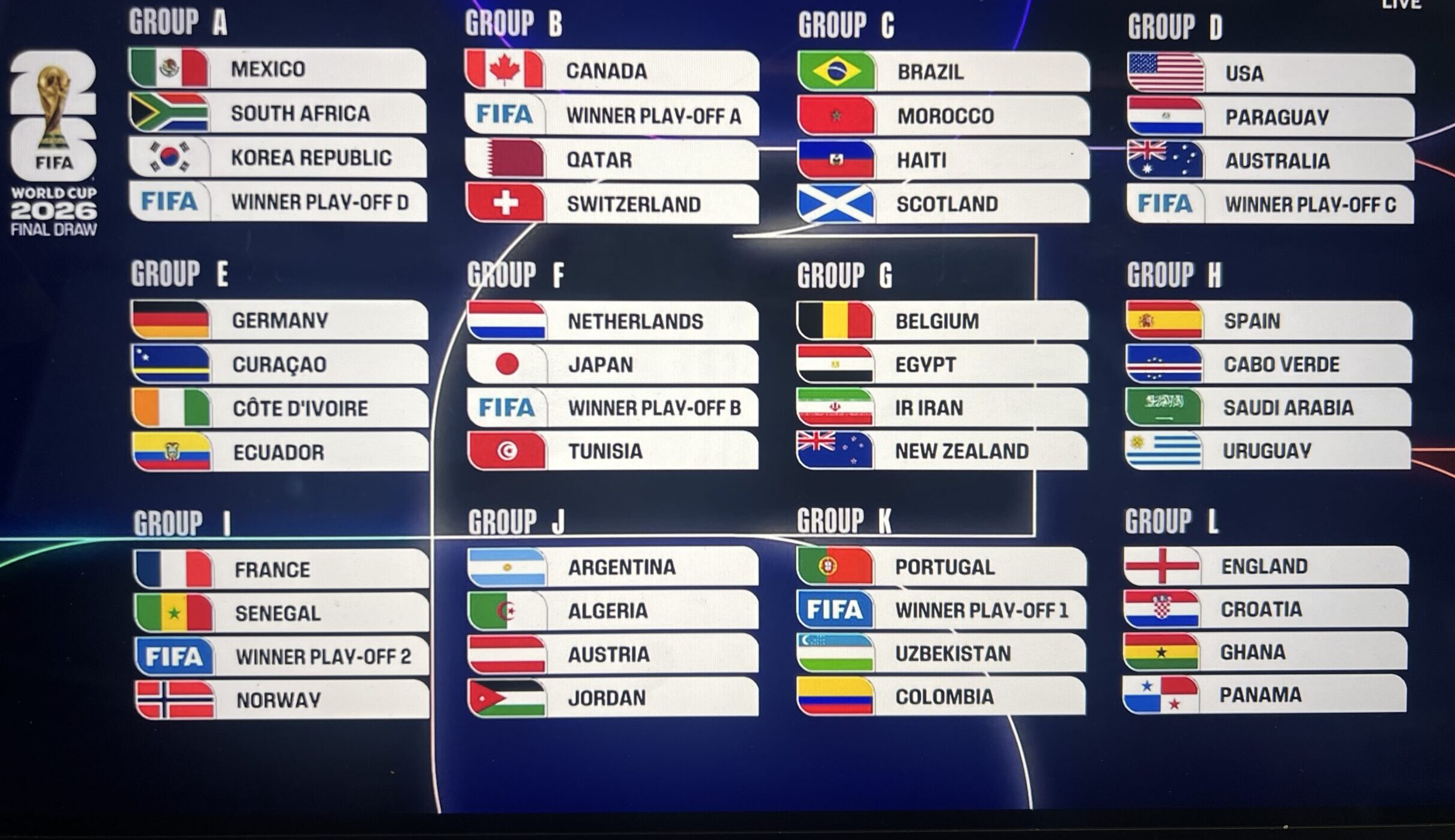By Sean McCann, Ph.D., USOC Sport Psychology Department
Like athletes, some coaches thrive in high pressure situations and others fare poorly. The Olympic Winter Games in Salt Lake City were my fifth Olympic Games, and by closely observing coaches at the Games, I have noticed certain behavior patterns that exist in the coaches who excel under pressure. For simplicity’s sake, I organized these behaviors into three key skill areas:
I am regularly surprised by generally, successful coaches who have large “blind spots” or are unaware of issues that others recognize. Often, coaches are in the dark about the blind spots until something goes wrong at a big event. In preparing for big events, I suggest gaining self-knowledge in two areas, being able to define coaching excellence at big events and getting feedback on your strengths and weaknesses shown under stress.
SELF KNOWLEDGE
Define Coaching Excellence: In an Olympic Coach article (Spring 1997, “How Do You Know You Have Done a Good Coaching Job),” I wrote about how difficult it was for Olympic coaches to evaluate their own coaching performance separately from the medal performance of their athletes. Forcing yourself to write a checklist of “behaviors of excellent big-event coaches” before the event can help increase self-knowledge.
By rating your skills in each of these behaviors (e.g., daily organization, flexibility under pressure, optimism, ability to delegate, etc.), you have clues about your potential blind spots at big events. Of course, success at big events is related to excellence, but it isn’t the same thing. As Joe Paterno said, “Success is perishable and often outside our control. In contrast, excellence is something that’s lasting, dependable, and largely within a person’s control.” If you strive for big event coaching excellence, success is likely to come.
Learn Your Stress Personality through Feedback
One of the most useful, and difficult, things a coach can do is receive honest feedback from the people around him/her. For big event coaching, it is useful to know how those around you see your strengths and weaknesses when you’re feeling criticized, angry, nervous or depressed. These four conditions are regular visitors to coaches at big events. Knowing how athletes and other staff perceive you during those moments can help you develop a strong plan using your strengths and compensating for your weaknesses. Unfortunately, research has shown that the higher your position in an organization, the less likely you are to receive honest feedback. You need to have at least one person in your coaching environment who isn’t afraid to tell you the truth. Do you have such a person?
A Thermostat for Coaching Success
Like a thermostat that releases coolant to an engine in danger of overheating, it is important for coaches to have mechanisms to handle the increased stress of big events. Coaches who lack these mechanisms tend to get in “survival mode” during big competitions, and those just “trying to make it through” a major event do not excel at coaching. There are four key strategies to building your own stress-thermostat:
1. Controlling anxiety. People vary greatly in how nervous they get during competition. Nervousness is not a problem unless it interferes with your ability to coach your best. Unfortunately, I have witnessed numerous examples of a nervous coach coaching poorly at important events. This can happen by:
- making other staff nervous,
- worrying endlessly,
- spreading nervousness to athletes, by over-coaching (saying too much),
- under-coaching (saying too little),
- focusing on not making mistakes instead of taking advantage of possible opportunities,
- becoming rigid, tense and/or irritable, and
- draining the fun from everyone around you.
- If one or more of these symptoms happened to you at smaller events, they are more likely to occur at bigger events.
To battle coaching anxiety, you must be good at controlling thoughts, feelings, and your physical state. Identify the thoughts and feelings that calm you down, then develop the ability to call-up those thoughts and feelings when nervous. For example, one successful coach thinks of his family for 30 seconds before he gives a speech to his team. This allows him to believe his message of having fun, staying relaxed and being aggressive. In addition to thoughts and feelings, develop breathing and relaxation techniques to quickly lower your heart rate and slow breathing helps prevent your coaching body from undermining your coaching mind.
2. Stress-management strategy. Successful coaches have some way to reduce overall stress. For most coaches, the most successful way is exercise, although some read, listen to music, write letters and play video games. Whatever strategy you use, the key is to continue the strategy during big events! Too many coaches give up a stress management strategy during the Olympic Games because they “just don’t have time.” If managing stress makes you a better coach, you can’t afford to stop managing stress in the big events where the most stress occurs.
3. Compartmentalizing. A number of issues can interfere with your ability to focus on the present. They may include; unfinished business, questions about schedule changes, unexpected technical challenges, anger over stupid decisions, challenges in your personal life, and a variety of other issues. To have an effective meeting with an athlete during a big event, you must learn to compartmentalize (set aside those thoughts and focus on the here and now). Compartmentalizing is a key skill to master. Without it you may lose the ability to solve problems quickly and the ability to connect emotionally to the people around you.
Simple techniques can help you develop the ability to compartmentalize. A strategy used by some coaches is to identify a physical place which becomes the last point where extraneous thoughts are allowed to enter your head. For example, a coach who always drives a car to competitions literally opens a glove compartment, takes a breath, drops in all extra unhelpful thoughts, closes the glove compartment and leaves those issues for after the competition. Another coach uses a two sentence verbal checklist before talking to individual athletes on competition day. Before approaching the athlete, he says, “Where am I? I’m right here, right now.” With this exercise, he assures all other thoughts are cleared from his mind so that he can attentively listen to the athlete.
4. Impulse control. The powerful emotions that hit you at big competitions are one of the things that make coaching at big events so much fun. On the other hand, strong emotions sometimes overwhelm coaches. While anger and frustration may be real and appropriate responses to a bad call that could cost your athlete(s) a medal, effective big event coaches learn to control the impulse to vent anger during the competition. Impulsive shouting, swearing or physical display of your feelings sends a negative message to other coaches and your athletes.
At a recent Olympic Games, an athlete told me that an angry outburst by her coach made her feel that the coach didn’t believe she could win in her next event. In fact, the coach was angry, but not at the athlete’s performance. The outburst sent her a message that caused her to assume he was angry about her performance. For a coach at a big event, finding a safe place to express feelings is one thing, but losing control is not acceptable. With everyone under stress, losing control is risky.
Building Strong Relationships with Athletes
The best coaches understand their athletes. Period. When coaching at big events, your athlete may surprise you by showing something you haven’t seen from them before. A coach told me after a devastating and surprising failure at the Olympic Games, “I didn’t think I had to talk to him about managing pressure. He is a World Champion! Of course, in hindsight, he had lots more pressure and expectations here. I worried about some of the others, but not him. I should have talked to him.”
Understanding your athletes and developing effective communication is the heart of effective coaching. Big event coaching is no different except the consequences of not knowing your athletes are bigger! Key items to remember about knowing and understanding your athletes include:
Don’t overlook emotions. Feelings are often more important than thoughts at big events. People react differently to stress, and athletes may be on a completely different page than you. Know the early warning signals for confidence problems, nervousness, and over-arousal. One coach told me after the fact, “I saw her nodding and smiling, but I could tell she was so fired up that she wasn’t listening at all.” Taking five extra minutes with this athlete to calm and remind her of how simple the job was made all the difference for this Olympic medal winner.
Develop good questions. Getting in the habit of asking, rather than telling, pays dividends at big events. Rather than guessing how athletes are doing, asking the right questions can help develop self-knowledge, self-control and self-confidence.
Among the best questions you can ask are those that remind athletes how they got where they are. For example, asking what they did to make training go so well the day before is a great way to talk to athletes before a big event. Remember, it is always a good idea at big events to focus on what to do, not what if. One of my favorite exercises to use with a nervous athlete at a big event is made up of four questions:
1. What is your job? Sample answer, “play soccer well tomorrow.”
2. How do you do that? Sample answer, “Attack the first minute, then go harder.”
3. Can you do that? Sample answer, “Yes! I’m in amazing shape.”
4. Will you do that? Sample answer, “Yes!”
Asking questions can become a routine that allows you to quickly understand what your athletes are thinking. Additionally, it lets athletes find their own solutions rather than simply agreeing with your solution. If athletes can’t say it, they aren’t likely to believe it!
Develop trust so athletes can express weaknesses. Guess how many athletes like to tell their coaches that they are afraid? Exactly, none do. Guess how many coaches want terrified athletes to keep it to themselves at a big event? Okay, maybe some would! But you cannot solve a problem if you don’t know it exists. Athletes need to be able to tell you when they need your help, and when their own skills are over-matched by the situation.
A dangerous myth athletes hold is that mental toughness means ignoring dangerous and distracting thoughts, anxiety, and self-doubt. Many athletes believe that talking about fear makes it real, while trying to push unwanted thoughts and feelings away equals mental toughness. Unless they have a strategy for controlling their thoughts and fears, however, this approach is doomed to fail at big events, where the demons are so much bigger! This problem increases significantly if athletes are afraid to admit weaknesses to their coach. Treating nervousness and self-doubt as being normal at big events allows you to discuss and solve these challenges with the athletes. On the other hand, if mentioning these things is taboo, you won’t know until you see them arrive in the form of defensive and tentative behaviors during competition.
Know the difference between “good quiet” and “bad quiet.” You must know how your athletes look when they are ready to perform versus when they are trying to look as if they are ready to perform. Knowing the difference is the key to big event coaching, because knowing means that you know when to brake, steer and get out of the way. Of course, it isn’t just athletes who don’t talk a lot you need to be able to read. You also need to know what it means when an athlete laughs with others, does jumping jacks, talks on the cell phone or prays. You must know their normal competition routines and ones you are seeing for the first time.
Big events often bring new behavior, and you must determine if it is good or bad. The best way to determine good from bad is to compare with past behavior, which is always the best predictor of future behavior. Behavior seen for the first time at an Olympic Games isn’t necessarily a bad thing, but it isn’t always good either. If you and the athlete communicate well, it is rarely a problem to ask an athlete how they are doing, especially if that is your normal routine. Like athletes, you should always question why you are doing something for the first time at a big event.
Source: TeamUSA.org
More Coaching Articles:














